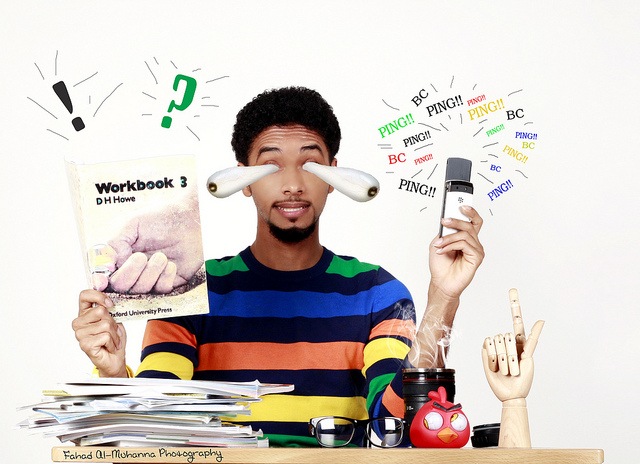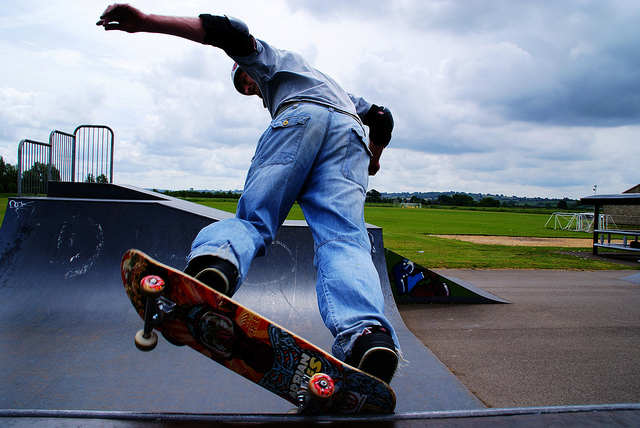I never thought of getting a poker game together as such an exhibition. It never used to be; in high school, in college, we’d decide on the when/where/time, and then spend 10 minutes making calls. Within 30 minutes, we’d hear back from 95 percent of the people. In or out. See you there or catch you next time.
You could say those were simpler times. Now, everyone has more responsibility to juggle and things come up at the last minute. Ask any assistant or executive how things are at the office, and they’ll tell you, “oh, it’s crazy busy. Crazy crazy busy.”
Crazy busy is not an excuse for lack of accountability.
Life if complicated, but isn’t that why you have all those fancy apps on your phone? Your iCal and your six alarms, your international text messaging and GPS. Don’t these tools exist so you can make a commitment — yes or no — or if you have to break a commitment, you can communicate in a timely manner?
So what’s with the lack of accountability? Why do people consciously decide they’re not going to bother with a response? Why do we accept the behavior with the admission that, “well, this is how things just are…”?
We see others do it, and that makes it okay
The executives, the agents and all the other power players leverage time as their weapons. Canceling and rescheduling are tools in their arsenal to remind others that compared to them, they’re insignificant. Suddenly, “feeling tired” and “I don’t feel like it” are valid reason to cancel appointments. I remember rescheduling a half-an-hour general interest meeting that’d already been pushed literally, a dozen times — the original appointment was over a year ago.
If a meeting is pushed back one whole calendar year, then (one) the issue at hand either resolved itself and (two) the meeting wasn’t important to begin with. Why not cancel it?
Instead, I push it back another month, without explanation of the logic behind the decision. I bask in the wisdom of the decision, and nod my head as I observe “how business is done.”
Then I emulate the behavior in my personal life, with my personal relationships. If I’m called out on it, I justify my lack of accountability by saying, “this is how business gets done.”
There’s an implied pecking order when it comes to accountability.
The relationship is easy to follow: if they’re higher than you, then you’re the model of accountability and commitment. If they’re lower than you, you remind them of their status by not bothering to respond. That’s not precisely how the train of thought choo choos through the mind, but it’s close.
Every time someone fobs you off, they commit a specific transaction: they bet this show of superiority (“I am so powerful, so well-connected, that I can’t be bothered to respond to you”) is more valuable than any potential retribution (“…and there’s probably nothing you can do about it.”) On a conscious or unconscious level, blowing you off was a justified opportunity cost.
Ease of access translates to an easing of accountability
Our wonderful communication applications put our entire network just a few keystrokes away. That barrier to connect is so low, that in turn, the perceived opportunity cost of failing to connect is non-existent (“I choose to ignore this message because I know if I need something, I can always reach out.”) Plus, generally speaking the “higher” the technology, the more indirect and greater the anonymity. So by relying heavily on e-mailing and texting, we shield ourselves from the emotional consequence: we don’t respond to an e-mail; we cancel last minute via text.
In short, if I don’t feel like an ass for canceling then it’s easier to cancel.
The lack of accountability can be frustrating if you let it be. Is this how everyone treats one another? Is this really how business gets done? You can mope about it. You can get out of the game.
Or you can treat each one of those tiny injustices like chips on your shoulder. They can serve as nettling reminders that you’ve got something to prove — that they miscalculated when they decided blowing you off was a justified opportunity cost.
And then you go do something about it.
Photos credit: fahad Al-Muhanna









